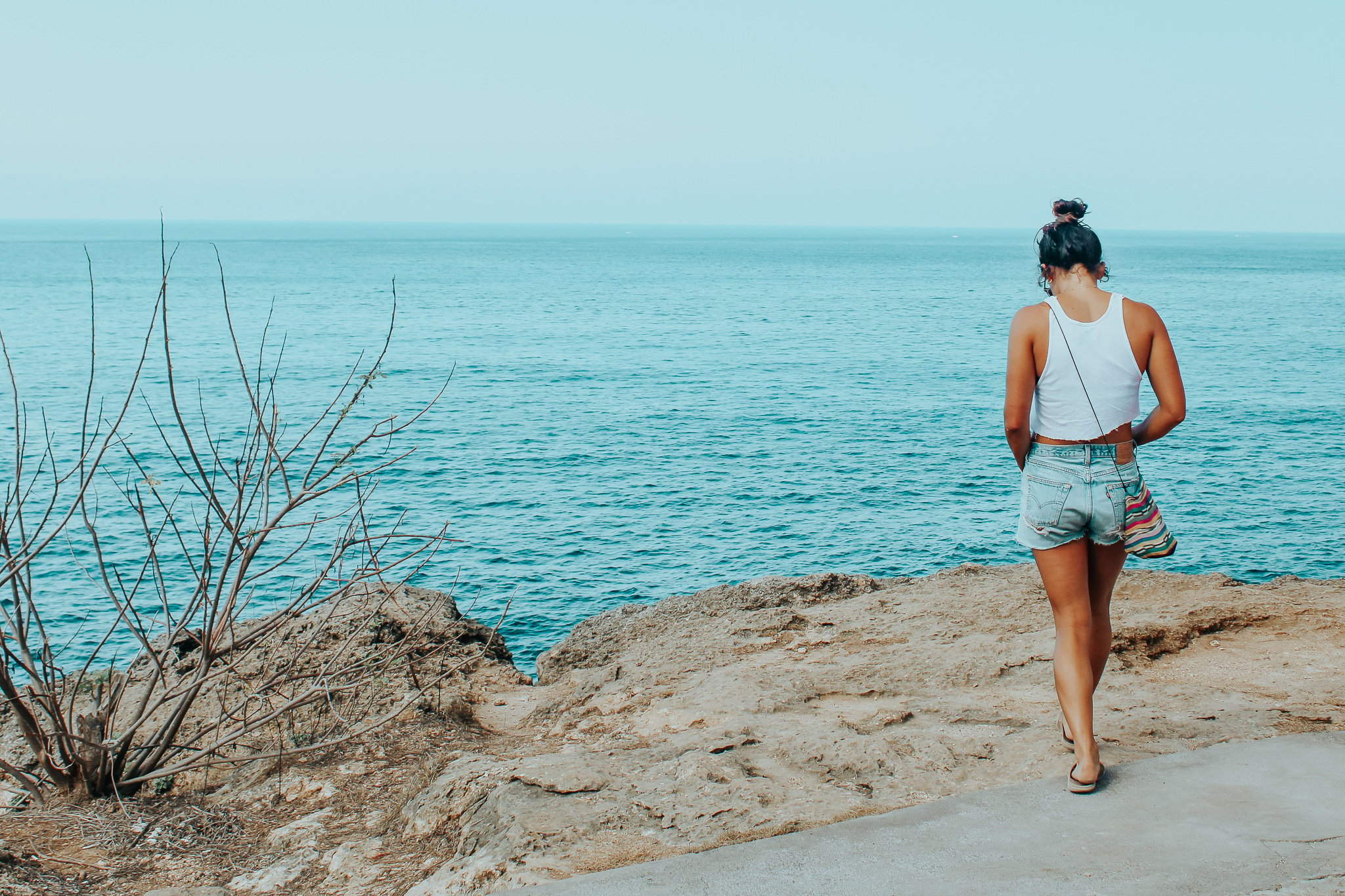Share this
How to Beat the Post-Travel Blues
When the end of a vacation marks the start of your sad days
After spending time abroad, it's easy to feel overwhelmed and under-excited by the mundane tasks of, um, not traveling. Getting reacquainted with friends and family and even doing simple tasks like grocery shopping can be enough to make you want to hide in your room from stress.
Post-trip depression–or the post-vacation blues as they are known to some– manifests differently in every person and can have different effects depending on where you went or how long you were away. For some, it’s that crippling dread of returning to work on Monday after two weeks spent on a beach in Mexico; for others, it’s a sense of lethargy and detachment that stalks you like a shadow for weeks or months after coming home.
However it hits you, the post-travel blues are no joke, and finding ways to effectively deal with them is important for your mental health. Here are a few tips to help you ease back into your real-life routine after your adventures are done.

1. Allow yourself some time
It’s easy to get frustrated with your own emotions, particularly when you don’t fully understand where they are coming from or how to stop being upset, but it’s important to be kind to yourself when you’re feeling those post-vacation blues. When you schedule your trip – and your return – it can be tempting to come back at the very last minute so that you have as much vacation time as possible, but it might actually be a better idea to schedule a day of downtime for yourself before heading back to work.
A day or two of downtime will give you an opportunity to unpack, shower, and settle in without feeling rushed, which will ease some of the shock of coming back to your daily routine.
2. Find like-minded travelers
One of the most frustrating things about coming home is that everyone asks, “How was your trip?” but they don’t really want to hear details about the people you met in Poland, or the incredible food you ate on a Tuscan terrace in Florence. They want you to say, “It was great!” and then forget about it. They don’t understand how an incredible vacation could turn into post-vacation blues.
It can be really difficult for travelers to connect with people after they return, in part because talking about your amazing travel experiences means you run the risk of turning into that ever-bragging person who never shuts up about their trip in the eyes of your friends, and also because some of your friends and family who have never left home might just not understand what your trip means to you.
People who live full time in a van, out of a backpack, or have more airline miles on their credit cards than they know what to do with often share a lot of the same values and interests. So when you come back home, try to find some friends like this so you have like-minded people to connect with.
Lastly, keep in touch with friends you met traveling, and use social websites like Meetup to find other people who love to travel and share your interests. Find people who care about the same things you do, and who inspire you to dream big and keep having adventures.
P.S. It's easy to find your forever travel friends by joining one of our trips.
3. Be a tourist in your own city
Many travelers love the sense of discovery they get when exploring a new place, whether that means learning about history and culture in a museum, or sampling local specialties at restaurants and from street vendors. Part of post-trip depression is the lack of experiencing and exploring new places. But the thing is, our hometowns have all that stuff too, and many of us take it completely for granted.
When you’re itching to go somewhere new but you’re still stuck at home, try to take on the mindset of a tourist on your own familiar ground. Visit that traveling art exhibit in one of your city’s museums, scout out some touristy attractions, go for a hike, take photos and try to recreate that exciting feeling of adventure.
4. Create mementos of your trip
Sometimes when life overwhelms you, it can help to remember some of the things that made you smile from your trip. If you kept a travel journal during your adventures, reread some of your entries, scroll through photos (maybe even print and hang a few!) or hold the mementos (like a paper map) that you kept. This will be sure to send all that oxytocin rushing to your post-travel blues-filled brain.
5. Start planning your next trip
When your trip is over, and your post-travel blues are setting in, don’t think of it as an ending, but rather like you’re hitting pause on your travels. The knowledge that you didn’t just have a ‘once in a lifetime’ trip but instead completed a single chapter in your epic travel story, can help frame your return in an entirely different light. So when settled life gets you down, and adventure and travel start calling your name, then by all means, you should answer it because more travel is the absolute best cure for the post-travel blues (it’s also a total catch-22, but once you’ve been bitten by the travel bug, there’s no getting rid of that thing!).
Why not get inspired by this list of the Top European Cities to Visit in Winter?
6. Build a life that doesn’t require escaping
Make a list of the things that you love about traveling, and find ways to incorporate those things into your daily life. Use the tips from this list and whatever else you come up with to build a life that doesn’t make you feel like you need to escape it.
- Do you dread going to work every single day? Look into getting a different job, possibly one that incorporates travel or lets you work remote.
- Do you feel like you and your friends have drifted since you returned from your travels? Look into strengthening those friendships with some quality time spent doing things you both love, or building relationships with people who share your new interests.
Remember: awesome adventures are ahead
The post-travel blues are not something that happens to everyone, and even if you do suffer from it, your experience might be completely different from someone else’s. But mental health is incredibly important so doing whatever you can to maintain your state of happiness is vital, whether traveling or home.
- February 2026 (1)
- January 2026 (6)
- December 2025 (1)
- November 2025 (3)
- October 2025 (1)
- September 2025 (1)
- August 2025 (3)
- July 2025 (1)
- June 2025 (1)
- April 2025 (2)
- February 2025 (1)
- January 2025 (1)
- October 2024 (1)
- September 2024 (2)
- August 2024 (1)
- July 2024 (2)
- June 2024 (2)
- May 2024 (1)
- April 2024 (3)
- March 2024 (7)
- February 2024 (3)
- December 2023 (2)
- November 2023 (1)
- September 2023 (1)
- August 2023 (2)
- July 2023 (2)
- June 2023 (10)
- May 2023 (4)
- April 2023 (1)
- March 2023 (3)
- February 2023 (1)
- December 2022 (1)
- October 2022 (2)
- August 2022 (4)
- July 2022 (1)
- June 2022 (2)
- May 2022 (1)
- April 2022 (4)
- March 2022 (7)
- February 2022 (6)
- January 2022 (5)
- December 2021 (29)
%202.jpg?width=672&height=236&name=trovatrip-acoucke-coyote-gulch-utah-IMG_1741(Edited)%202.jpg)
